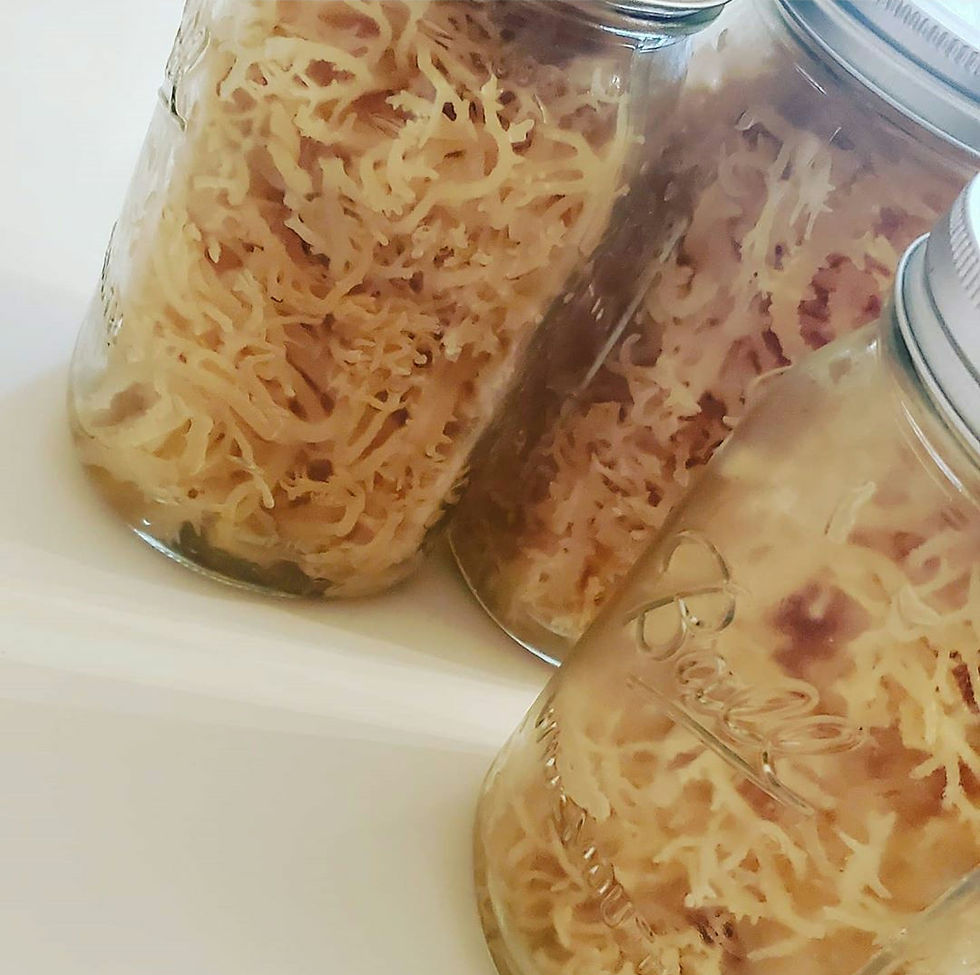Sea Moss Guide Get The Best Sea Moss In 2021
- Body Wellness Boutique

- Apr 1, 2021
- 2 min read
Sea moss is a generic name given to a collection of different species of seaweed. It is typically known by several different names. Sea moss, Irish sea moss, sea algae, chondrus crispus are a few popular names. The 3 major sea moss types are golden eucheuma cottonii, gold gracilaria and purple chondrus crispus. They are all referred to as ‘sea moss’ but they are slightly different from each other in appearance.
The 3 types of sea moss species all have most of the same benefits. Natural populations of Gracilaria & Eucheuma Cottonii tend to have color variants with different pigmentations such as yellow, blue, green, red, and brown. Chondrus Crispus is usually but not always purple. So naturally, most golden varieties tend to be Eucheuma cottonii or Gracilaria. Chrondus Crispus is redish-purple because it grows in deeper, colder waters without access to as much sunlight. When compared to Eucheuma Cottonii, it has a flatter looking leafier appearance, while Eucheuma Cottonii looks more twig-like and grows in warmer waters. Eucheuma Cottonii is very similar to Chondrus Crispus in the manner by which it absorbs mineral elements, macro elements and trace elements from the sea. Gracilaria does have more collagen in it so it makes a thicker gel.
Overall, there's no major difference in the different types of sea moss. They all have great health benefits. Sea moss has many great benefits.
It's a great nutritional source for total body health and nutrition. Your body naturally has 102 minerals in it and sea moss alone contains 92 of those minerals. 18 of your body's minerals are essential and sea moss contains 15 of those essential elements. It's very rich in iron, potassium, iodine, magnesium, and calcium. Known to eliminate a range of problems like bladder disorders, bronchitis, intestinal disorders and glandular problems to swollen joints, lung difficulties, thyroid conditions, tuberculosis, tumors, and ulcers. It contains very few calories, no fat and it's fiber provides a feeling of fullness (100g of it contains only 49 calories, no fat or cholesterol at all, and 10g of fiber). Dietary fibers absorb water from the small intestine and encourages a feeling of fullness which inhibits overeating. The fiber also has a mild laxative effect that helps with constipation by flushing the colons. It's also a 'time released' energizing fuel source, providing long chain polysaccharides that help to deliver nutrients over a longer period of time because the minerals are absorbed into the body.
So to sum it all up, eat your sea moss! Rather you choose to indulge daily, weekly, or monthly, fuel your body and be well!





Comments